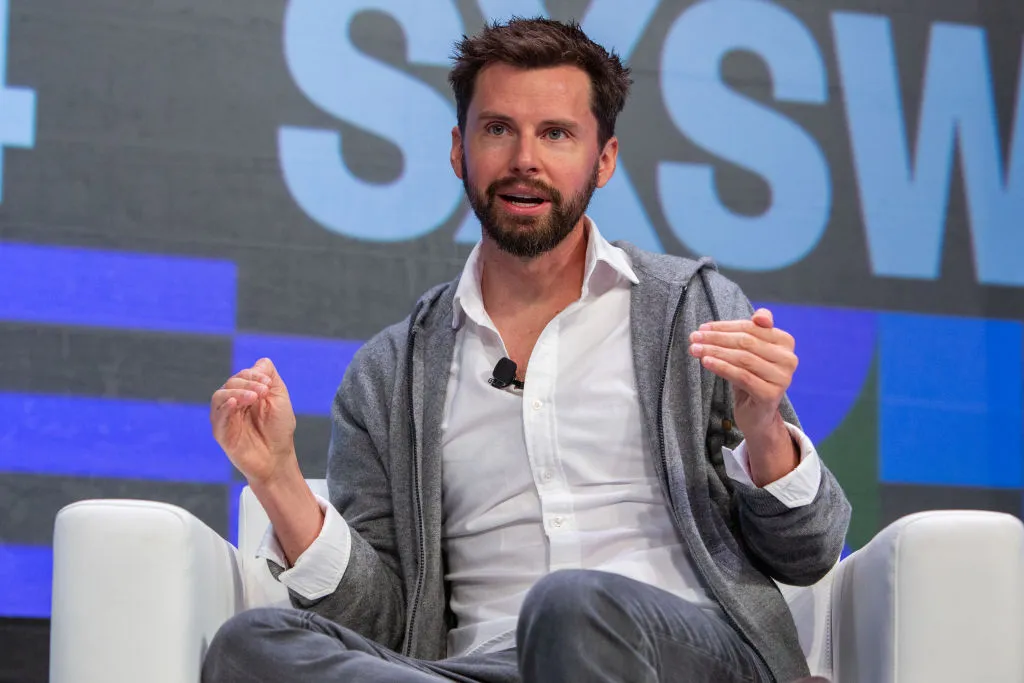“AI Should Stand Behind Us, Not Between Us”: How Hinge CEO Justin McLeod Is Reimagining Dating Tech for Human Connection

When Justin McLeod rebooted Hinge in 2015, the dating app landscape was a crowded field of swipes, hookups, and gamified engagement loops. Nearly a decade later, Hinge has carved out a different path — one defined not by more matches, but more meaningful ones.
In a recent interview on Rapid Response with host Bob Safian, McLeod — founder and CEO of Hinge — opened up about how the company is leveraging artificial intelligence (AI), doubling down on human connection, and rejecting the engagement-at-all-costs model that defines much of tech today.
From “Engagement” to Actual Engagements
While the broader dating app category has faced cultural headwinds — Gen Z fatigue, skepticism about algorithmic matching, and a hunger for real-world experiences — Hinge’s numbers tell a different story. Revenue is up 25%. User growth is steady at 20%. One in ten engagements in the U.S. now begin on Hinge.
McLeod attributes this success to a simple but radical philosophy: “The app should be designed to be deleted.”
Too many dating platforms, he argues, are built for stickiness — optimizing for time spent in the app, not time spent on actual dates. “That has been my critique,” McLeod said. “When an app is really designed for engagement and retention, not relationships, it can make people feel like they're stuck and they're putting in a lot of effort without getting what they want”.
By contrast, Hinge is focused on helping users move offline faster — because, as McLeod puts it, “the ultimate purpose of Hinge is not to stay on Hinge.”
AI as Coach, Not Companion
While many companies are racing to integrate AI in increasingly visible ways, McLeod has taken a more nuanced approach. Yes, Hinge is using AI — but not to replace human interaction.
“We’ve completely overhauled our recommendation system using AI,” McLeod explained. “We’ve seen double-digit gains in both the effectiveness and efficiency of our matches. People are getting more dates with less effort”.
But perhaps more impactful than backend optimization is a feature that’s more user-facing: AI-powered prompt coaching. Many users struggle to fill out dating prompts with anything more than a few vague words. With light-touch generative AI feedback — think: “Can you say more about that?” — Hinge has reduced poor-quality answers by a third and tripled high-quality ones.
Still, McLeod is adamant that AI has its place — and its limits.
“One of our principles around AI is that it should stand behind us, not between us,” he said. “I don't think that an AI chatbot should be your friend — or certainly not your boyfriend or girlfriend”.
Bringing Esther Perel Into the App
To deepen emotional resonance, Hinge partnered with renowned psychotherapist Esther Perel to launch a new set of conversation-starting prompts. These aren't profile builders — they’re designed to help people connect more deeply once a match is made.
“Esther had some great ideas,” McLeod shared. “Things like: Before we go out, you should listen to X. Or When I want to feel more like myself, I go do Y.” These micro-details help users paint a more honest, three-dimensional picture of who they are.
This collaboration fits into Hinge’s broader thesis: The future of dating apps isn't more automation — it's better facilitation.
Why Hinge Doesn’t Obsess Over Competition
While most startups track competitors obsessively, McLeod has taken the opposite approach — one shaped by past mistakes.
“That was a mistake I made the first time around,” he admits. “We spent too much time thinking about the competition. When I rebooted Hinge, I steered the team to just pay attention to our users. There’s so much rich territory there”.
This user-first ethos has not only driven innovation — it’s led the category. McLeod notes that many other dating apps are now quietly mimicking Hinge features. His response? Stay focused. Stay curious. Keep listening.
Real World, Real Dates, Real Impact
Despite being a digital product, Hinge is leaning into the offline world more than ever. “We do millions of in-person events every month — and they’re called dates,” McLeod said with a grin.
Through initiatives like the One More Hour program — which funds real-world meetups — and marketing campaigns that reflect messy, non-romcom love stories, Hinge is challenging the sanitized, stylized narratives of online dating.
“True love stories are messier,” McLeod says. “They have more twists and turns. We want to bring that to reality”.
Key Takeaways for Founders and Builders
McLeod’s approach to building Hinge offers several powerful lessons for entrepreneurs — especially those navigating crowded markets, evolving tech, or shifting cultural sentiment:
- Design for outcomes, not engagement. Ask: Are you solving the right problem, or just optimizing vanity metrics?
- Use AI in service of people, not in place of them. McLeod’s prompt coaching feature shows that AI can elevate humanity — not erase it.
- Build with your users, not just for them. Hinge’s diverse employee base has helped it stay relevant across audiences. Representation wasn’t just a value; it was a strategy.
- Avoid copycat syndrome. Look at your users and the unmet needs they face — not at your competitors' roadmap.
Final Word: The Business of Love Isn’t Just Business
When asked what’s at stake for Hinge, McLeod didn’t talk about margins or market share. He talked about loneliness.
“There’s so much opportunity out there,” he said. “People are lonelier than ever. I don’t wish ill upon any of my competitors. I think everyone needs to be doing more — and doing better — to help people find love and connection”.
In a tech world that often prizes scale over soul, Justin McLeod is building something quietly radical: a company that grows by helping people leave its platform — and find someone to stay with.





